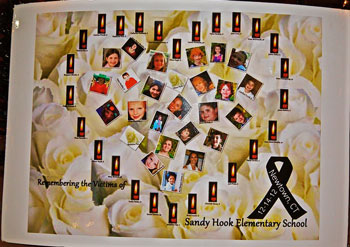3:30 a.m.
From time to time I find myself in discussions with trustees asking very detailed questions about the future of NEC. The last question they ask, though, is almost invariably the same. “So Tony, what keeps you awake at night?”

The president, in addressing the nation — not, to begin with as our elected leader, but as a man and a father — communicated the horror with deep emotion and compassion. The President also asked some very pertinent questions about gun control that reflect the somber mood of a nation repeatedly traumatized by gun violence. We shall see what happens with his initiatives which are now being debated in Congress.
As the president of a major teaching institution, my top priority — of course — is to protect the young people who study here, our faculty and staff, and all the many thousands of concert visitors we have every year. But this mandate necessitates negotiating a way through a challenging Scylla and Charybdis of choices. Some people would have security at NEC enhanced to the point where we would have armed guards and machine gun nests at each corner. Others point nostalgically to the days when the doors to NEC were always open and almost anyone could walk through the buildings any time of day.
The latter option is no longer viable. But neither is the armed camp model. What would that strategy achieve? The campus would resemble a prison. It could dilute in the most regrettable way the warm family feeling, the sense of a nurturing community that distinguishes NEC and contributes to the outstanding education we provide our students. And, then, the worst elements would have won.

NEC has certainly increased its security in recent years and our security team (which is not armed) is skillful and dedicated to the safety of our kids. I have seen them deal with some very difficult situations when external forces suddenly make their presence known on campus.

We hate the immense inconvenience of more and more security, but now we cannot live without it. And in living with it we must not lose our humanity and our culture and our focus on the best in our society. The pressure of getting all this right is something that consumes my energies and those of my team, and I know there will be many early mornings when I watch the darkness at the window turn to light. It is the light which must guide us.
And I wish President Obama, Vice President Joe Biden, and supporters of their gun control legislation god speed in their endeavors.


No comments yet.
Add your comment